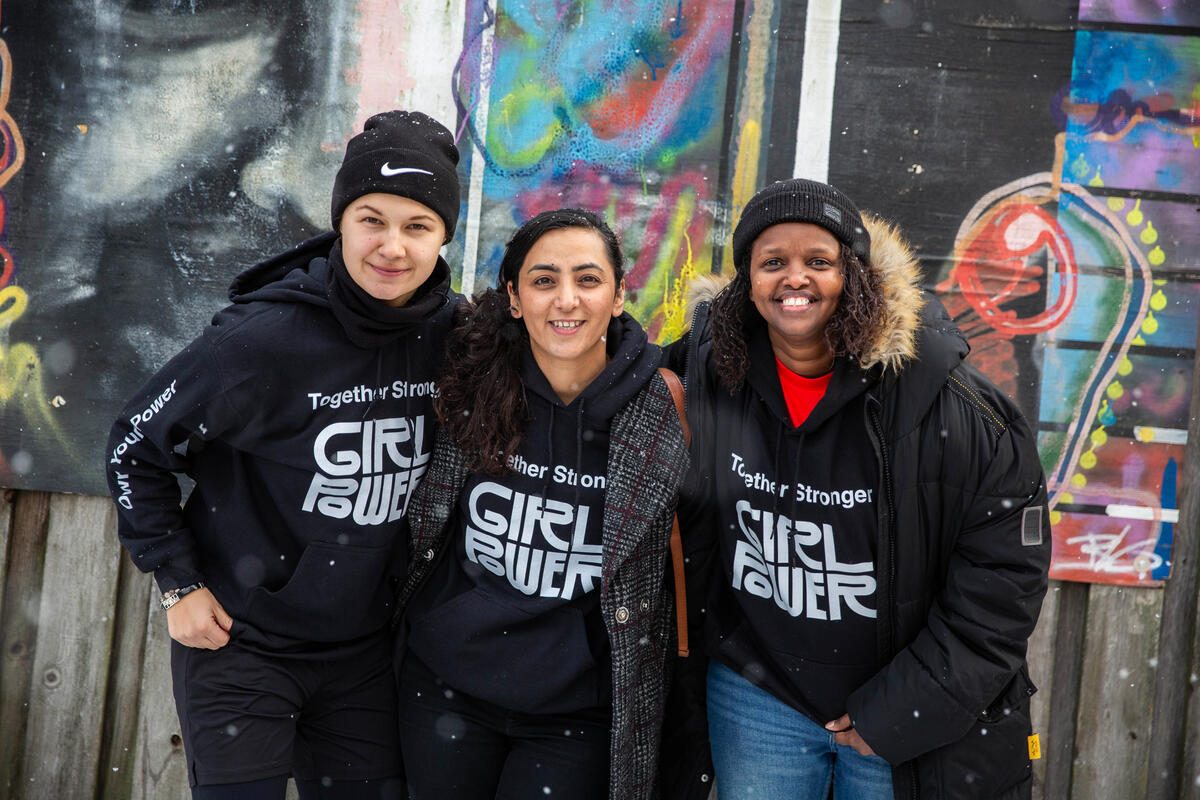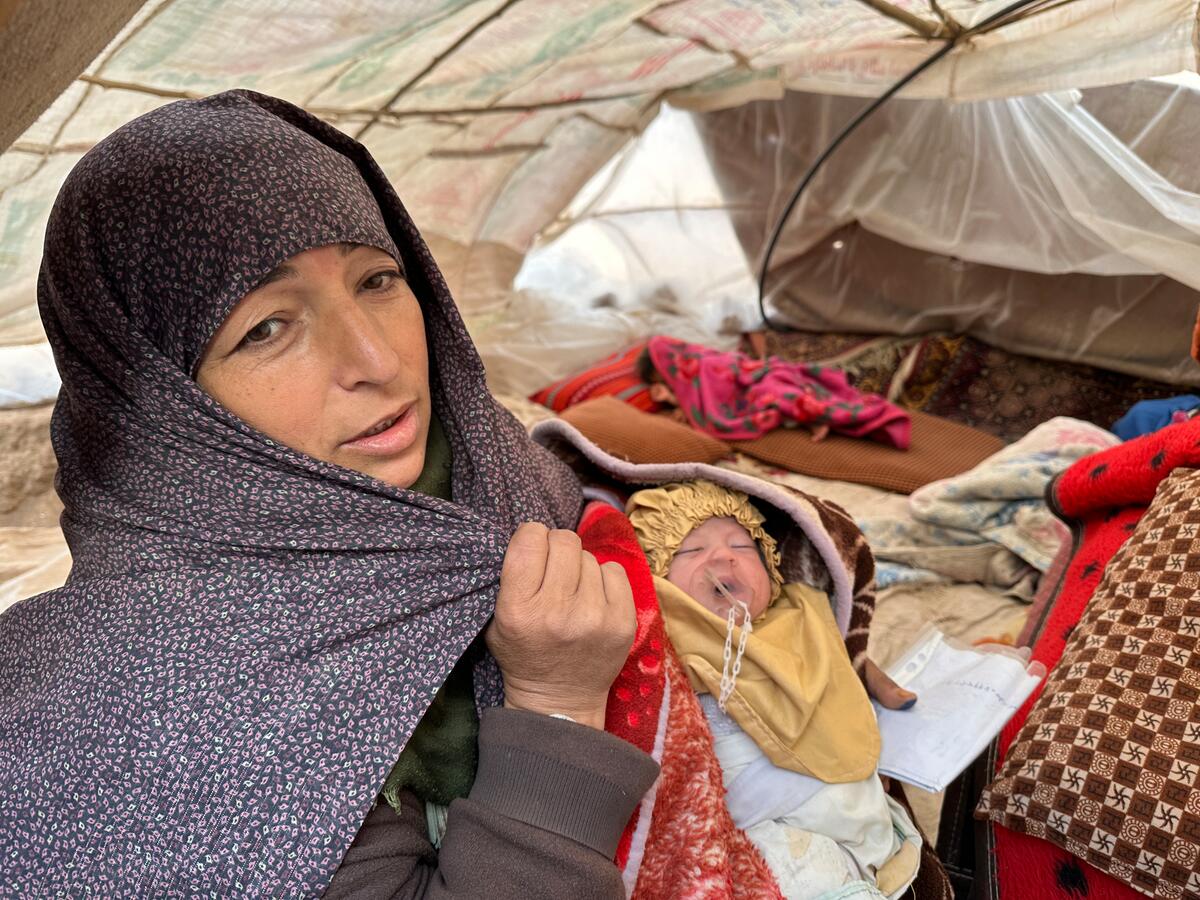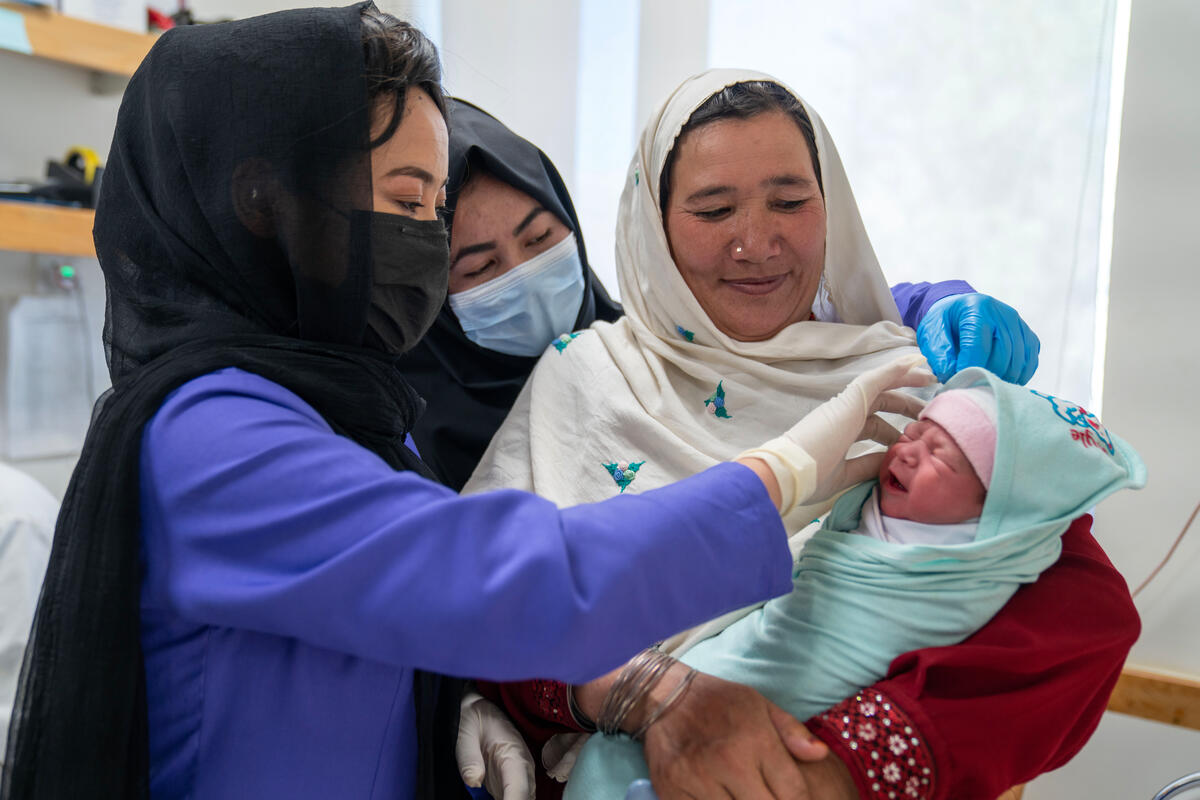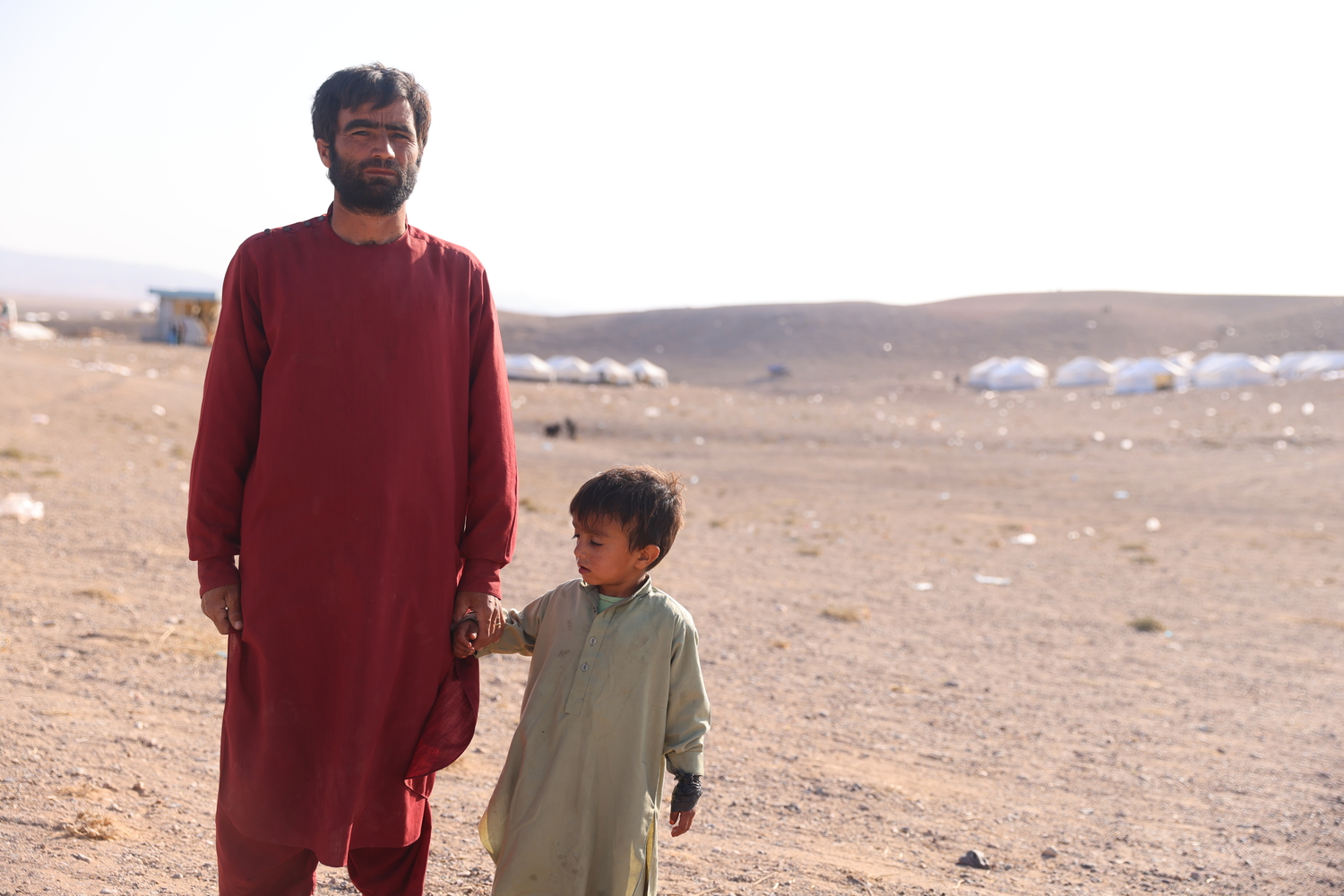Afghanistan Humanitarian Update No. 55
Afghanistan Humanitarian Update No. 55
28 February 2002
At a Glance:
- First repatriation registration centre to open Friday
- UNHCR pre-positions repatriation assistance
- Influx into Pakistan eases
First repatriation registration centre to open Friday
The United Nations High Commissioner for Refugees will open Friday a facility that will register Afghan refugees in Pakistan under a UNHCR programme to assist an expected increase in returns to Afghanistan since the establishment of a new government in Kabul.
Called "Voluntary Repatriation Centre," the facility at Takhtabaig, just outside Peshawar, will enlist Afghans who have decided to return on their own. Registering with the UN refugee agency will enable them to receive transportation expenses on their arrival in Afghanistan. Returnees will also later receive a three-month's supply of food from the UN's World Food Programme, and various other assistance items to help them get re-established.
The centre at Takhtabaig is the first of seven that UNHCR plans to set up in Pakistan to cope with an anticipated increase in the number of returnees this spring. Similar facilities will also be established in Iran. Pakistan and Iran together host an estimated 3.5 million Afghan refugees.
Each of the centres being established in Pakistan will be able to process up to 5,000 persons a day, for a total daily capacity of up to 35,000 persons.
The UN refugee agency is planning for some 1.2 million Afghans to return home this year, most of them refugees outside their homeland, but the agency will also assist up to 400,000 internally displaced Afghans to return home with a similar package.
Under the programme to be launched Friday, UNHCR is facilitating the return of Afghans who have decided to go back on their own. Returnees registering beginning Friday at Takhtabaig will receive a document which they can then exchange at a cash distribution point in the Afghan city of Jalalabad and use to pay for their transportation homewards. They will also get a paper that will allow them to receive food and other relief aid in their home provinces. Leaflets outlining procedures under this programme are being distributed initially in camps in Pakistan's North-West Frontier Province, and word of the UN's assisted return programme has been broadcast over radio stations.
In addition to the cash distribution centre already operational at Jalalabad, UNHCR is establishing other centres elsewhere in Afghanistan near the country's border crossings with Iran and Pakistan. A centre at Takhtapul located between Kandahar and the border town of Spin Boldak is slated to open shortly.
The UN refugee agency has also signed an agreement with GTZ under which the German-based organization will establish distribution centres in each of Afghanistan's 32 provinces where returnees participating in the UNHCR repatriation initiative will be able to collect various relief items and rehabilitation materials and assorted tools.
Since the beginning of the year, some 150,000 Afghans have spontaneously gone back to Afghanistan, despite the devastation of decades of civil war and drought in the past years, an unstable security situation and a host of humanitarian problems.
UNHCR pre-positions repatriation assistance
Ahead of the kick-off Friday of UNHCR's stepped-up repatriation assistance programme, the agency already pre-positioned various urgently needed relief items in Jalalabad and elsewhere in Afghanistan to ensure that adequate stocks would be on hand as larger numbers of Afghans start returning home.
In recent days, UNHCR dispatched six Hercules C-130 cargo aircraft loaded with more than 20,000 plastic tarpaulins from its Dubai stockpile to Jalalabad. UN refugee agency flights of relief items into Jalalabad's war-battered airport continued today as UNHCR worked to ensure that adequate supplies are on hand for any refugees returning from Pakistan, as well as to also assist internally displaced persons scattered throughout the region to return home.
Also today, UNHCR staff in Peshawar, Pakistan, dispatched 15 truckloads of items overland to Jalalabad. Included among the latest overland delivery to Jalalabad were 40,000 blankets, 30,000 jerry cans, 16,000 plastic mats, and 10,000 buckets. Beginning next week, scores of UNHCR-hired trucks will shift 5,000 tents and thousands of additional plastic tarpaulins from Peshawar to Jalalabad, as UNHCR continues to pump rehabilitation materials into Afghanistan for distribution under its facilitated repatriation programme.
The Japanese agency "JEN" has also contributed more than 2,000 family packages to UNHCR. The packages, containing stoves, blankets, clothing items cooking and sanitary materials, will be distributed to displaced Afghan families as they return home.
In southern Afghanistan's Kandahar Province, UNHCR today sent 29 trucks loaded with various aid items over the border from Pakistan to boost the refugee agency's stockpile of goods in its Kandahar warehouse.
Items delivered to Kandahar on Thursday included more than 4,000 blankets, more than 4,000 plastic tarpaulins, 2,000 sleeping mats, 2,000 buckets, 2,000 jerry cans, 28,800 bars of soap, and supplies of clothing and footwear.
Elsewhere, the UN refugee agency this week delivered 185 metric tons of aid to western Afghanistan's principal city of Herat from its stockpile in Ashgabat, Turkmenistan, in advance of the kick-off of the UN's facilitated repatriation operation from Iran, set to start in April with the start of the Iranian new year. Among the items UNHCR delivered in the ten-truck convoy from Turkmenistan were tents, blankets, sleeping bags, kitchen sets, buckets, jerry cans, plastic tarpaulins, kerosene heaters, mattresses and sleeping mats.
In recent days, UNHCR has initiated the purchase of millions of dollars worth of relief items, including some 240,000 shelter tool kits, 96,000 repair kits, 16 prefabricated warehouses, 643,200 metres of cotton cloth, 160,800 kerosene lamps, 254,600 blankets, 797 metric tons of soap, 138,690 sleeping mats, 160,000 buckets, 87,100 jerry cans and 84,430 plastic tarpaulins. The goods will ensure that adequate supplies are available over the coming months for UNHCR's 2002 repatriation assistance operation.
Afghan influx eases
UNHCR staff based at Chaman in southern Pakistan report that few Afghans have crossed the frontier in recent days. Nevertheless, trucks were seen depositing people at the border throughout the entire Eid holiday, normally a time when Muslims limit travel in order to celebrate, possibly an indication of continued desperation in some parts of the country.
Some 10,000 Afghans are still encamped on the edge of UNHCR's Killi Faizo transit site, all waiting to be registered and shifted to UN-assisted camps further inland.
In the past several weeks, around 50,000 Afghans have arrived in Pakistan, including nomads and other people in need of assistance. Some groups have claimed persecution as a reason for fleeing, which has raised UNHCR's concerns about the situation facing minority ethnic communities in some parts of Afghanistan.
In southern Pakistan's Baluchistan Province, UNHCR currently cares for more than 151,000 newly arrived Afghans in a series of camps and at the Killi Faizo transit centres. In North-West Frontier Province, UNHCR continues to shift non-registered Afghans from Peshawar to Bar Kali refugee camp and other recently established camps in the Tribal Areas, where more than 61,000 new refugees are accommodated.








